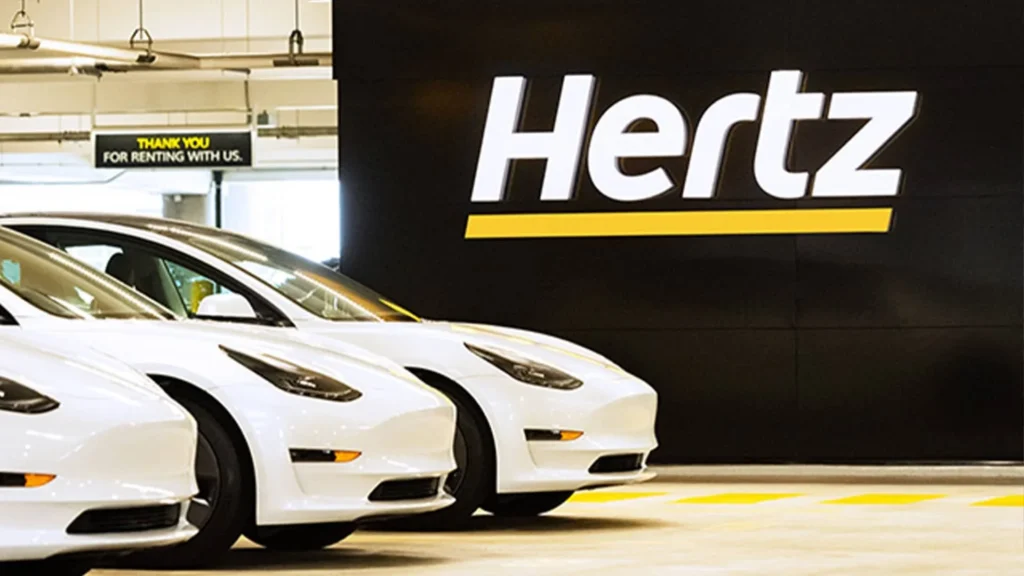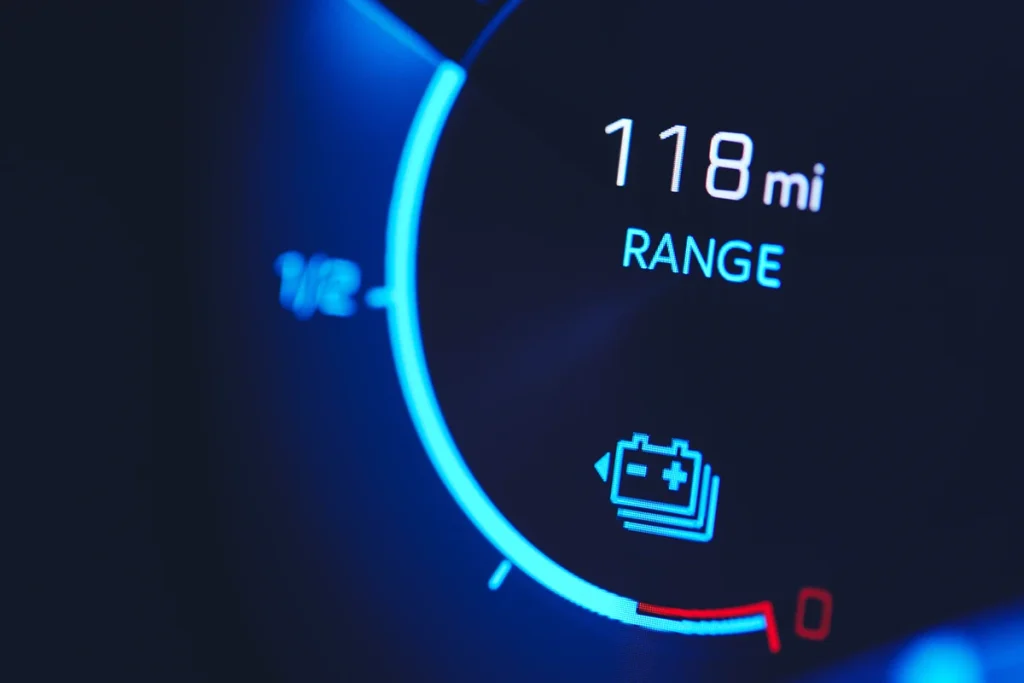In a surprising turn of events, Hertz has decided to scale back its ambitious plans to electrify a significant portion of its rental car fleet. This decision comes in the wake of unexpected challenges, including higher-than-anticipated electric vehicle (EV) repair costs and Tesla’s price cuts that have reduced the resale value of many electric cars in the Hertz fleet.
Featured Image credit: reddit
Hertz CEO Stephen Scherr confirmed the company’s rationale behind this strategic shift during the third-quarter earnings call, as reported by CNBC. While maintenance costs for EVs remained lower than those for comparable internal combustion engine (ICE) vehicles, the costs associated with cosmetic repairs and fender-benders proved to be significantly higher. Scherr explained, “For context, collision and damage repairs on an EV can often run about twice that associated with a comparable combustion engine vehicle.”
Furthermore, Scherr pointed to the impact of Tesla’s price cuts throughout 2023, which have led to even greater losses on cars written off due to collisions. These unexpected developments have prompted Hertz to reevaluate its commitment to electrifying its fleet.
Hertz initially made headlines in October 2021 by announcing its ambitious plan to add 100,000 Tesla vehicles to its fleets in North America and Europe by the end of 2022, with additional plans to introduce thousands of rental EVs in major markets. However, it seems that these targets are far from being met. Hertz’s CEO did not specify the extent of the company’s pullback but suggested that the initial order had left the leisure sector flooded with EVs, possibly due to renters, who were new to EVs, being unexpectedly offered electric vehicles.
Scherr emphasized that Hertz would adjust its pace of electrification, indicating that the in-fleeting of EVs would be slower than initially anticipated. Nonetheless, the company remains committed to the electric future and believes that its early entry into the EV market will ultimately prove beneficial as EV adoption grows.
As Hertz shifts its focus more towards ride-hailing and less on vacationing families, it aims to build a more profitable EV fleet. With the expectation that the demand for EV rentals will increase alongside general EV adoption, the company is positioning itself for long-term success.
Despite these strategic adjustments, Hertz reported lower-than-expected margins for the third quarter of 2023. EV repair costs were identified as a significant challenge, with Scherr stating, “Our direct operating expenses remained controlled in the quarter as they grew with transaction volume. On a unit basis, we achieved productivity gains across most categories of auto. The exception remained vehicle damage costs, particularly those on our EVs.”
The CEO further highlighted the decline in Manufacturer’s Suggested Retail Prices (MSRP) for EVs throughout 2023, primarily driven by Tesla. This price reduction has resulted in a decrease in the fair market value of Hertz’s EVs compared to the previous year, leading to larger losses when salvaging damaged vehicles.
This news had a substantial impact on the stock market, with Hertz shares closing down approximately 10% following the third-quarter update and Tesla shares also dipping around 3%.
Hertz also revealed that approximately 80% of the battery electric cars in its fleet are Teslas, making Tesla the predominant brand in its EV lineup. In total, electric cars now comprise about 11% of Hertz’s entire fleet, with roughly 50,000 electric cars currently in operation, of which about 35,000 are Teslas.
These figures fall significantly short of Hertz’s initial commitment to purchase 100,000 Tesla electric cars by the end of 2022. Although Scherr reaffirmed the company’s commitment to fulfilling this order, it is evident that they are not on track to achieve their goal of having EVs represent a quarter of their fleet by the end of 2024, as previously hoped.
Hertz’s focus has now shifted to working closely with Tesla to improve the performance and durability of its EVs to reduce incidents of damage. Scherr stated, “Our focus and our work with Tesla is to look at the car’s performance to lower the risk of damage incidents.” The company is engaging directly with Tesla on aspects such as parts procurement and labor.
Looking ahead, as Hertz acquires more EVs from manufacturers like GM and others, it expects these electric vehicles to have a lower incidence of damage and lower costs for parts and labor. Unlike Tesla, established automakers like GM have decades of experience in building a broad national parts supply network, which is expected to reduce maintenance and repair costs for Hertz.
In light of these developments, Scherr remains optimistic about Hertz’s ability to diversify its electric vehicle fleet successfully and address the challenges associated with EV repair costs.
On October 25, 2021, Hertz made headlines by announcing its intention to significantly expand its fleet of battery-electric vehicles with an initial order of 100,000 Teslas by the end of 2022. This announcement had a notable impact on Tesla’s stock market valuation, as the company’s market cap briefly reached $1 trillion for the first time.
Accompanying this announcement was a commercial featuring Super Bowl champion Tom Brady alongside parked Tesla Model 3 electric sedans in a Hertz garage, underlining the company’s commitment to electric mobility.
However, Tesla CEO Elon Musk surprised the market by revealing on November 2, 2021, that Hertz had not signed any contract with Tesla for the high-volume order. This raised questions about the viability of such an ambitious plan and the specifics of Hertz’s partnership with Tesla.
While electric cars have been touted as requiring less maintenance than their ICE counterparts, they present unique challenges of their own. Nikhil Naikal, CEO of Kinetic, a startup specializing in repairs for electric and autonomous vehicles, explained that the increased weight and higher torque of electric vehicles can put additional strain on suspension systems, brakes, and steering columns. Despite having fewer moving parts, electric cars can be susceptible to specific maintenance needs, such as more frequent tire replacements due to the wear caused by high torque and weight.
Hertz’s decision to slow down its EV fleet expansion highlights the complex and evolving landscape of electric vehicle adoption. While the promise of lower maintenance costs has been a significant selling point for electric cars, the reality is more nuanced, and companies like Hertz are learning to navigate the unique challenges of electrification. As the electric vehicle market continues to evolve, it remains to be seen how Hertz and other rental car companies will adapt to ensure a smooth transition to an electric future.


